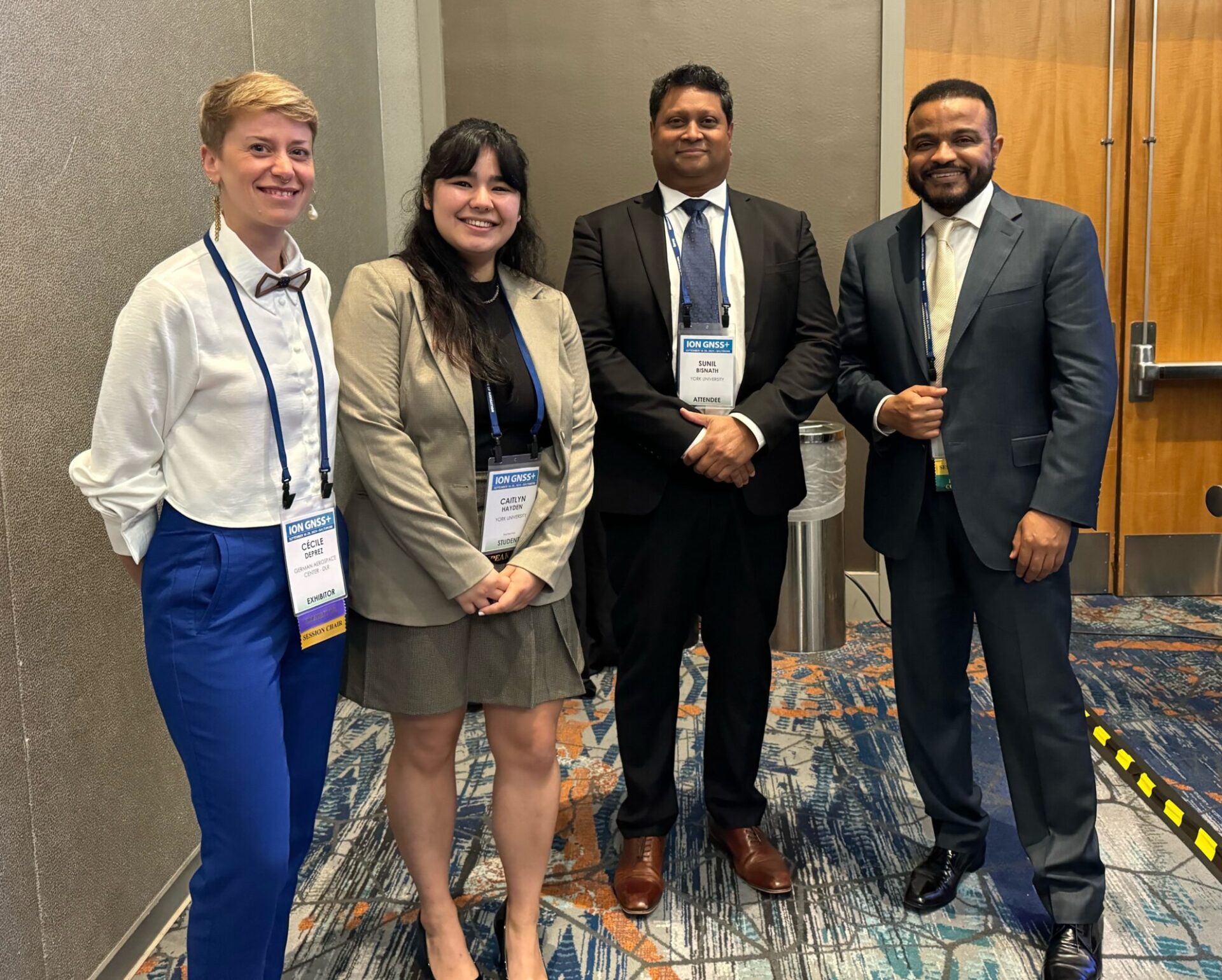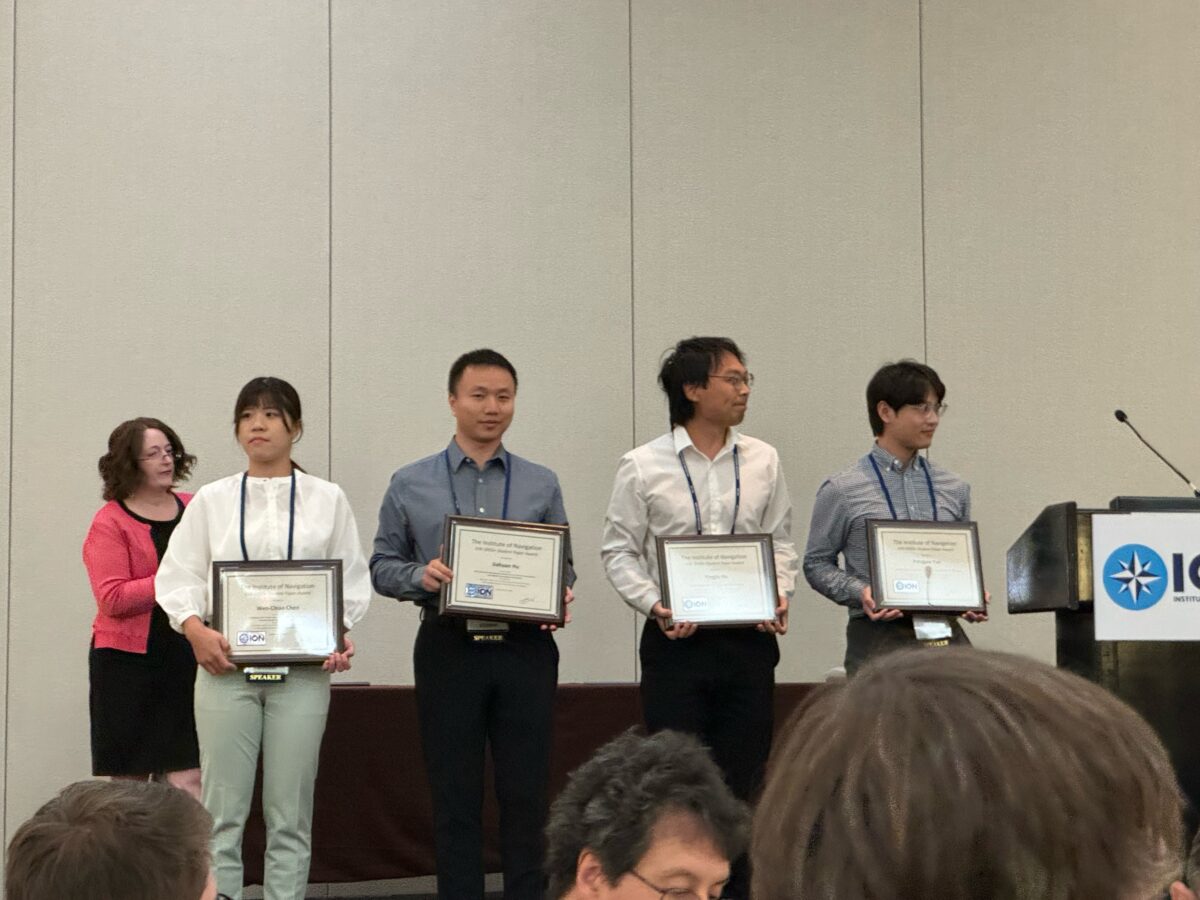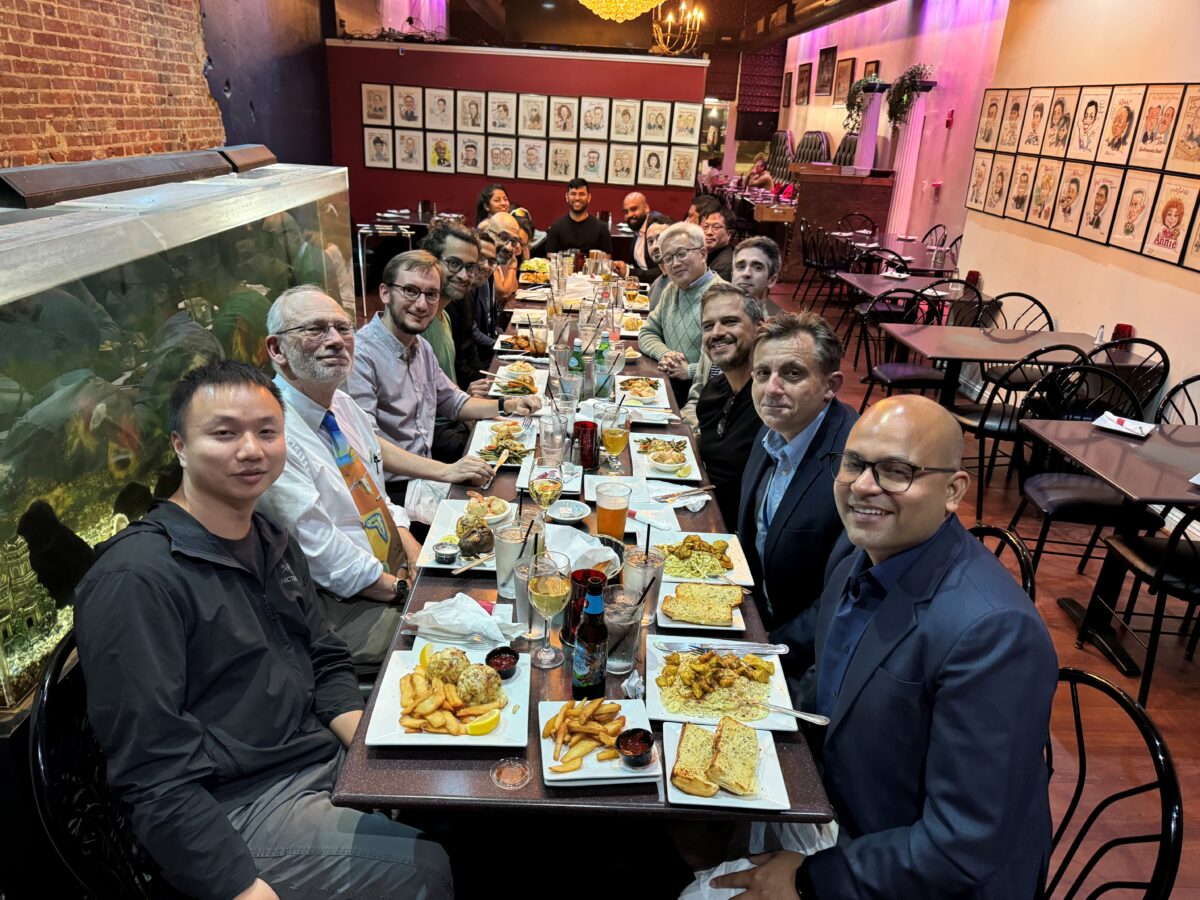Students and alumni of Lassonde’s Global Navigation Satellite System Lab shine at U.S. Institute of Navigation Conference
Tags:

In September, the Global Navigation Satellite System (GNSS) lab at York University’s Lassonde School of Engineering made their mark at the prestigious U.S Institute of Navigation (ION) GNSS+ conference in Baltimore, Maryland.
This conference is a premier international event for satellite-based positioning, navigation and timing research, attracting leading experts from around the world to discuss the latest innovations and challenges in the field. Lassonde’s GNSS lab, led by Sunil Bisnath, professor in the Earth & Space Science & Engineering department, showcased cutting-edge research that continues to push the boundaries of satellite technology in areas like smartphone positioning and vehicle navigation.
“GPS research has seen massive evolution over the past decades. In the 1980s, technology that no one had ever heard of served military purposes, and by the 2000s, the world was introduced to car and cellphone technologies,” says Professor Bisnath. “Now, we are expanding use to faster, smaller and lower-cost hardware with advanced software and resiliency, as well as AI for improved performance.”
The GNSS lab’s contributions were marked by an impressive range of activities at the conference, including five paper presentations on topics such as smartphone-based ionospheric refraction estimation and machine learning for improving smartphone positioning. In addition to the presentations, Lassonde students and alumni took on leadership roles, with Jiahuan Hu (PhD candidate) leading a session on GNSS applications in space, and Dr. Sudha Vana (alumna), organizing a conference track on policy and commercialization.
“The ION GNSS+ conference is the world’s largest technical meeting and showcase for GNSS technology, products and services. Activities such as attending presentations, communicating with world-leading professors, and discussing with exhibitors helps inspire new research ideas and support my future academic path,” says Jianhuan Hu. The event also facilitates critical connections with industry representatives, helping participants identify future employment opportunities and build professional networks.
Among the achievements of the conference were two prestigious awards: Jiahuan Hu received the Best Student Paper Award for his work on cycle slip detection, while Caitlyn Hayden (BSc candidate) earned the Session Best Presentation Award for her research on improving smartphone-based navigation.
Both awards are a testament to the innovative research being conducted at Lassonde, as well as the School’s commitment to fostering talent and providing students with the tools and mentorship they need to succeed in their careers.


Left: Jiahuan Hu (second from left) receiving his Best Student Paper award. Right: The group having dinner with colleagues in Baltimore, Maryland.
Attending conferences like ION GNSS+ provides invaluable experiences for students at Lassonde. These events offer opportunities to present their work on an international stage, engage with leading experts in the field and receive feedback that can shape the next phase of their research. It also provides a unique platform for students to network with industry leaders, opening doors to potential employment opportunities and professional collaborations. These experiences are critical in helping students develop the professional skills and confidence to become leaders in the rapidly evolving field of satellite-based navigation.
“This conference serves as the best annual networking opportunity for my students,” says Professor Bisnath. “It gives them the chance to learn about the latest and greatest technologies, explore career opportunities and understand how global research enterprises and industries operate. Students can see the whole forest, not just the trees.”